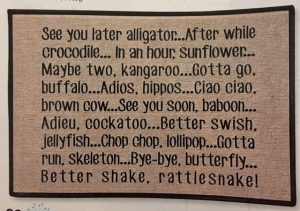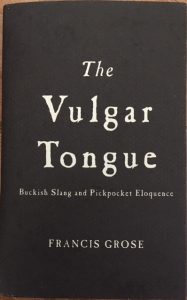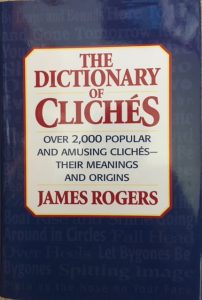Today’s blog is actually less a blog than a rant, a list of true but trite phrases that mark writing as unimaginative. So here goes.
A bird in the hand
A piece of cake
Abject terror
Alcoholic haze
Angelic smile
Black as coal
Black as midnight
Black as sin
Bone chilling
Brothers in arms
Cat-like
Catastrophic
Doe eyed
Drunken frenzy
Dumb as a stump
Easy as pie
Evil through and through
Eyes like saucers
Fighting tooth and nail
Guilty as sin
Hair raising
Heart pounding
Heart stopping
Herd mentality
High as a kite
Honey tongued
Lion-hearted
Moaning and groaning
Need to know
Nubile young thing
Old as dirt
Paralyzed in fear
Pure as the driven snow
Ran for his/her life
Rich as Croesus
Roaring like a lion
Rock hard
Scared stiff
Scared to death
Smoke and mirrors
Smooth as silk
Soft as butter
Soft as cotton
Strong as Atlas
Stood stock still
Sweet as sugar
The Midas touch
Tight as a tic
Tried and true
Walking on eggshells
Warm as toast
White as snow
Yelling like a banshee
Come up with better options. What are your pet clichés? Help your fellow writers by adding to the list!








